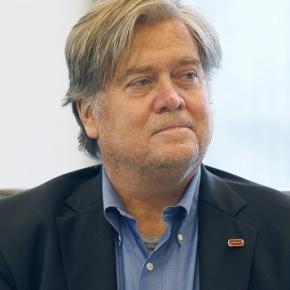MANDOS POST MANDOS POST MANDOS POST
The next century from this point on is likely to be pretty awful, and unless something changes drastically Real Soon Now, a lot of that will be due to very large global temperature increases. Not much will change for the better, though, because the world’s largest economy was willing, after all, to elect a man whose platform includes digging for and burning more coal, doing more offshore drilling, etc. More importantly, be believes shouting out loudly that these are good and praiseworthy things to advertise to the world, which makes it all significantly worse because saying is doing.
There’s a lot of hullaballoo about a report that appeared in the Washington Post (paywalled but sometimes you can get through). Everyone is saying that it reveals that the Trump administration accepts that a four-degree-Celsius increase in temperature is baked in. If you read the fine print, however, what is being argued that if a four degree increase is baked in, then the contribution of some emissions control measures is so small that it is not worth the alleged economic drag created by regulating them. The intended corollary being that if there is no global warming in the first place, there is no point in regulating emissions, therefore there is no point in regulating emissions either way. It is either insignificant or useless.
There is no “admission” here — the Trump administration is not accepting the likelihood of a four degree increase. One should consider who is running Trump’s environmental policy. I have been following the right-wing for a long time, and what were once internet trolls and small-time lobbyists are running the show. One of those characters is Steve Milloy, the tobacco and chemical industry lobbyist who has blogged for a long time at JunkScience.com. In a nutshell, Milloy vociferously denies the worth or necessity of any pollution control, particularly air particulates of the kind people blame for respiratory disorders (after all, if tobacco smoke can’t hurt you, how can small amounts of particulates?), and he most certainly rejects the prospect of global warming. Milloy now also boasts, quite credibly, of having a direct line to the people dismantling the EPA (they cite his work in their justification of doing so).
And for quite a while now, Milloy has been saying precisely what the Trump administration is “admitting” — that if car emissions standards are enforced, they will have a trivial effect on the climate, if the worst forecasts — which he and other denialist lobbyists love to emphasize — are true. But under no circumstances are they advising “resignation” to a fate they have consistently claimed they don’t believe is going to happen. (Whether they secretly believe it and are knowingly lying is one of those “stupid or evil” debates that are, on the whole, rather distracting and pointless. Maybe there will be a smoking gun screenshot of Milloy’s phone or something.) The draft government report to which the WaPo article refers uses a reference scenario in which no climate action whatsoever is taken to emphasize how small the effect of the regulations being relaxed really are.
So if the Trumpists don’t really believe in global warming, why would they deploy an argument based on the premise that regulation would have a trivial effect even if it were true? After all, it would be more straightforward to deny global warming full stop as a justification to cancel regulation. The reason is ideological: They know that other people believe in anthropogenic catastrophic global warming, so they know that regulation is tempting. And they believe firmly in a regulatory slippery-slope argument (this goes along with the deeply embedded libertarianism/anarcho-capitalism) — that if they allow a little regulation that has small effects, the regulatory system may entrench itself and produce much larger regulations. (And worse, people might like those regulations.)
And they’re right. The — alas — too-slow path to large-scale regulation under our present systems of government do mostly work their way through using small/insufficient regulations as wedges or levers to much larger regulation. That is why they vociferously scuppered US participation in the Paris Agreement, because the Paris Agreement admits that regulation is necessary, regardless of how small the Paris Agreement’s actual goals were. And saying is doing: The minimal regulatory “admission” is necessary for anything else to proceed.


